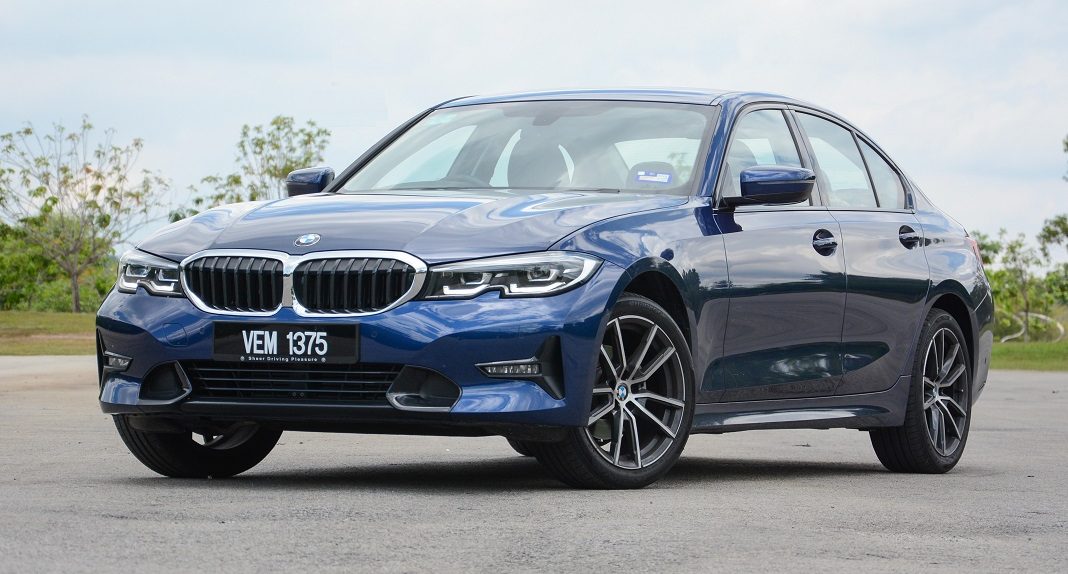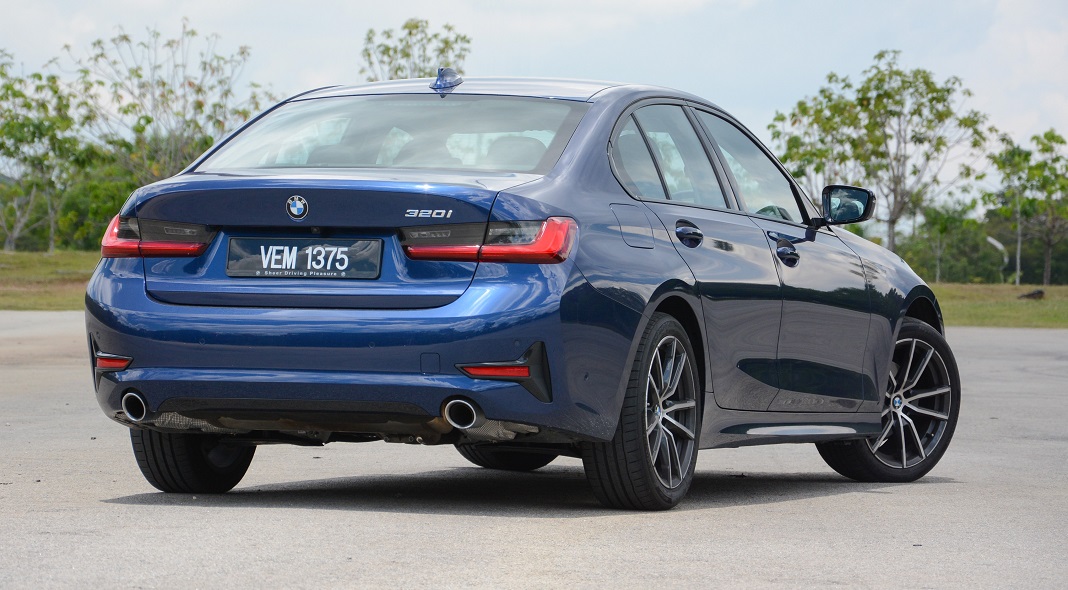 As an introduction to BMW, you can never go wrong by getting behind the wheel of any 3-Series, and for many, that has happened in a 320i. When BMW Malaysia withdrew the last generation 320i purportedly in favour of the tax incentivised 330e plug-in hybrid back in 2017, there were consternation – the 320i had been the best-selling variant of the best-selling BMW model by a considerable margin.
As an introduction to BMW, you can never go wrong by getting behind the wheel of any 3-Series, and for many, that has happened in a 320i. When BMW Malaysia withdrew the last generation 320i purportedly in favour of the tax incentivised 330e plug-in hybrid back in 2017, there were consternation – the 320i had been the best-selling variant of the best-selling BMW model by a considerable margin.

It’s good to see the 320i return as the entry variant to the new G20 3-Series range, appropriately powered by a turbocharged 2.0-litre four-cylinder motor with sufficient gusto and offering the kind of performance that feels subjectively stronger than what’s written on paper (0-100km/h in 7.1 seconds). So, it should be easy to recommend then?

Things have obviously moved on for the 3-Series, particularly in the cabin and its user interface, yet some things never do change. This is going to sound predictable – if you cherish finer nuances of driving, the 320i is (once again) the weapon of choice among its peers, more so than ever.
 ‘Sport’ really means sport
‘Sport’ really means sport
If there is a spider chart to show how far BMW has bumped the G20 3-Series towards the ‘handling’ quadrant, the spike would have been off the charts. Maybe it has to do with the fact that the last generation car was sometimes chided for its gentle dynamics, which were in contrast to the harder-edged E90 that preceded it, which in turn stood out against the softer balance of the E46. You should be able to see the pattern here and fashion a guess as to how the G20 turned out.

Let’s cut to the chase, the 320i Sport with standard suspension actually feels as firm and as buttoned down as any F30 model equipped with M Sport suspension, clearly BMW had raised the reference point of ‘sporty driving’ for the 3-Series, which also explains why the 330i M-Sport (launched prior to the 320i), with its lowered springs and firmer dampers, doesn’t take too kindly to the bumps on Malaysians roads.

Leaner and meaner
The ride of the 320i isn’t quite as restless as the 330i M-Sport’s (phew!), but it fusses unnecessarily over road creases that its predecessor dealt with easily. It is however worth noting that the body of the G20 is 25% stiffer than before, with revised suspension kinematics, wider tracks, and runs on 18-inch alloys (previously 17-inch), but the likely culprits that broke the truce between ‘handling’ and ‘comfort’ has to be those newly developed ‘lift-related’ passive dampers that vary its firmness according to the vehicle load and spring travel.
 The upshot here is that an entry 3-Series variant can now be driven harder than many 3-Series-es in recent memory – the front end of the 320i is wonderfully grippy on turn in, and it tracks more precisely in corners while requiring less corrections. The flatter, more tied-down posture of the car also facilitates cornering speeds that an F30 (on standard suspension) would struggle to muster.
The upshot here is that an entry 3-Series variant can now be driven harder than many 3-Series-es in recent memory – the front end of the 320i is wonderfully grippy on turn in, and it tracks more precisely in corners while requiring less corrections. The flatter, more tied-down posture of the car also facilitates cornering speeds that an F30 (on standard suspension) would struggle to muster.

While there are quicker variants to choose from, the snappy performance of the 320i never makes you feel as though you bought the least expensive 3-Series; somehow those German horses emanating from the ‘detuned’ B48 2.0-litre turbo motor gallop a lot harder than 184hp and 300Nm suggest, a significant part of which has to do with how fast the 8-speed ZF automatic responds and despatches gear changes – this combo never gets old.
 Why driving matters
Why driving matters
Notwithstanding the occasionally brittle ride, the G20 320i is a step forward in almost every aspect next to the F30, that much is certain. Its exterior styling is athletic and attractive, while the interior makeover brings it up to date in terms of the latest amenities and technological content, though rivals probably have better looking and more tactile cabins compared to the 320i.

There is the tendency for some to overstate the importance of driving dynamics when the best-driving cars don’t always get the nod from consumers, and that’s why the likes of the Mercedes C-Class, Audi A4 and Volvo S60 all have their own flavour profiles catering to different tastes. Like styling, driving pleasure is an element that stirs emotions, but it also establishes a bond and keeps the driver coming back for more, and that is something BMW does better than most, even if it’s ‘only’ a 320i.
Likes: Slick powertrain, sharp handling, good looks
Dislikes: Fussy ride, bland interior trim
BMW 320i Sport
Price: RM239,883.65 (RM248,800 w/ SST) Engine: 2.0-litre 4-cyl inline, turbocharged, RWD Output: 184hp / 300Nm Transmission: 8-speed auto Performance: 0-100km/h in 7.1 seconds; top speed 235km/h Wheels/tyres: 225/45 R18 (F & R) Safety: 6 airbags, Electronic Stability Control Warranty: 5-year/unlimited mileage (inclusive of scheduled maintenance)













